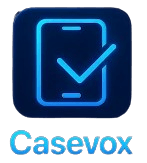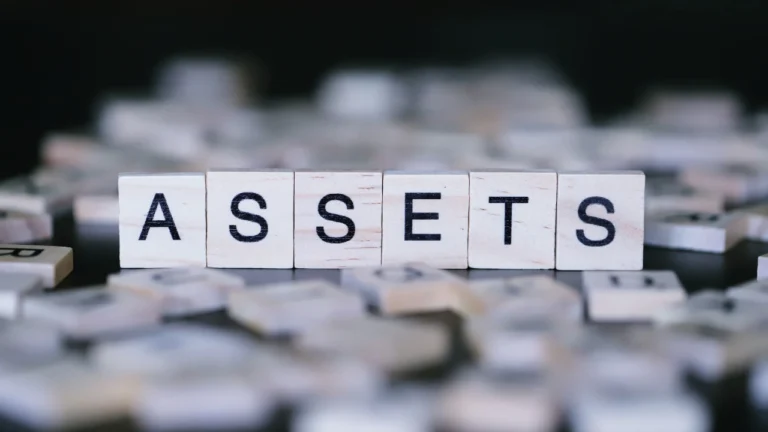🚨Is Collection Attorneys USA LLC Harassing You?
Is Collection Attorneys USA LLC Harassing You Over a Debt? Do they threaten to take legal action or garnish your wages? Are they calling you at all hours or several times a day? Are they telling your family and neighbors that you owe a debt? If so, what they are doing is illegal and needs to stop. You have the legal right to stop Collection Attorneys USA harassment over personal, family, or household debts. Note that business debts are not covered by the FDCPA. If a collection agency violates the FDCPA, you may be eligible to receive up to $1000.00 in statutory damages, along with covering your attorney fees.
Understanding Collection Attorneys USA Debt Collection Harassment
Dealing with debt is already stressful, but it becomes much worse when a company like Collection Attorneys USA crosses the line into harassment. Debt collectors are allowed to contact you about money owed, but they are not allowed to threaten, intimidate, or shame you. Unfortunately, many people facing financial struggles experience these unfair tactics.
Here are some common red flags of debt collection harassment you should watch out for:
Constant, repeated calls – Getting several calls a day, especially at odd hours, meant to wear you down until you pay.
Abusive or threatening language – Using profanity, yelling, or even suggesting you’ll face violence or harm.
Telling others about your debt – Calling your employer, family, or neighbors to embarrass you into paying.
Lying about who they are – Pretending to be an attorney, a government official, or misrepresenting the amount you owe.
Note: If you’re experiencing any of these behaviors, know this: they are illegal under the Fair Debt Collection Practices Act (FDCPA). You do not have to put up with it. Understanding your rights is the first step to stopping harassment and protecting yourself — and legal help is available if you need it.
Who is Collection Attorneys USA?
Collection Attorneys USA is a third-party debt collector located in Ohio. They use various methods of debt collector contact, including phone calls, letters, and emails. Contact Information:
Collection Attorneys USA LLC
PO Box 427 68 Ravenna St.
Hudson OH 44236
p:877-439-1110, 469-608-0000
Arrest Threats & False Claims Under the FDCPA
False Threats of Arrest
Debt collectors may threaten to have you arrested if you do not pay your debt. However, this is a false threat. Debt collectors do not have the authority to arrest you, and it is illegal for them to make such threats. If a debt collector threatens to have you arrested, you should report them to the Federal Trade Commission (FTC) and seek the help of a debt collection harassment attorney.
These false threats are often used to intimidate and scare consumers into making payments they may not be able to afford. It’s important to remember that non-payment of a consumer debt is a civil matter, not a criminal one. Debt collectors cannot issue arrest warrants or initiate criminal charges against you.
Implications of Criminal Behavior
Debt collectors may imply that you have committed a crime by not paying your debt. However, not paying a debt is a civil matter, not a criminal one. Debt collectors may try to make you feel guilty or ashamed, but this is not a legitimate tactic. If a debt collector implies that you have committed a crime, you should report them to the FTC and seek the help of a debt collection harassment attorney.
These implications are designed to exploit your fear and lack of knowledge about the law. Understanding that non-payment is not a criminal offense can help you resist these manipulative tactics and take appropriate action to protect your rights.
Garnishment or Legal Action Misrepresentations
Debt collectors cannot threaten to garnish your wages, seize your property, or take other legal actions unless they actually intend to take such actions and have the legal authority to do so. Threatening arrest is often a scare tactic used by unscrupulous debt collectors to pressure consumers into making payments they may not be able to afford.
Why Debt Collectors Use Arrest Threats
Debt collectors may use arrest threats for various reasons, including:
- Intimidation: The primary goal of an arrest threat is to intimidate the consumer into making a payment out of fear of being arrested or jailed. Many consumers are unaware of their rights under the FDCPA and may be frightened into paying the debt, even if they cannot afford to.
- Pressure: By creating a sense of urgency and fear, debt collectors hope to pressure consumers into quickly resolving the debt, often by making immediate payments or agreeing to unfavorable terms.
- Exploitation of Vulnerable Consumers: Debt collectors may target consumers who are particularly vulnerable, such as older people or those with limited knowledge of the law, assuming that they are more likely to believe the threat and comply with the collector’s demands.
Your Consumer Rights and Legal Protections
Federal law protects you from harassment, and you have the power to stop it. The Fair Debt Collection Practices Act (FDCPA) is a federal law that regulates debt collection practices and provides protections for consumers. Under the FDCPA, debt collectors are prohibited from using abusive, unfair, or deceptive practices to collect debts.
Some of your rights under the FDCPA include:
- The Right to Be Informed: Debt collectors must provide you with information about the debt, including the amount owed and the name of the original creditor.
- The Right to Dispute: You have the right to dispute the debt and request verification. The debt collector must cease collection efforts until they provide verification.
- The Right to Privacy: Debt collectors cannot discuss your debt with third parties, such as your family, neighbors, or employer.
- The Right to Cease Communication: You can request that a debt collector stop contacting you. Once they receive your written request, they can only contact you to confirm they will stop or to inform you of specific legal actions.
Understanding these rights can empower you to take control of your interactions with debt collectors and protect yourself from unfair and illegal debt collection practices. If you believe your rights have been violated, consider consulting a debt collection harassment attorney to explore your legal options.
Legal Consequences for Debt Collectors
Debt collectors who make false arrest threats or otherwise violate the FDCPA can face serious legal consequences, including:
Individual states may have their own laws that provide additional protections against Collection Attorneys USA debt collection harassment.
- Lawsuits: Consumers have the right to sue debt collectors who violate the FDCPA. If successful, consumers may be awarded actual damages (for example, emotional distress), statutory damages of up to $1,000, and attorney’s fees.
- Regulatory Action: Regulatory bodies, such as the (CFPB) and the Federal Trade Commission (FTC), can take enforcement action against debt collectors who engage in illegal practices. This can result in fines, penalties, and restrictions on the debt collector’s ability to operate.
- Loss of License: In some states, debt collectors are required to be licensed. Violating the FDCPA, particularly through serious infractions like making false arrest threats, can lead to the revocation or suspension of their license to collect debts in that state.
What To Do If You Receive an Arrest Threat
- Stay Calm: Understand that a debt collector cannot have you arrested for failing to pay a debt. Non-payment of a consumer debt is a civil matter, not a criminal one, and debt collectors do not have the authority to issue arrest warrants or initiate criminal charges.
- Document the Threat: Write down the details of the call or conversation, including the date, time, the name of the collector, and exactly what was said. If possible, record the conversation (but check your state’s laws on recording phone calls).
- Request Written Validation of the Debt: Under the FDCPA, you have the right to request a written validation of the debt. This can help you confirm whether the debt is legitimate and ensure that the collector is operating within the law. Consumers should also check their credit report to ensure that the debt has not been improperly reported to a credit reporting company.
- Send a Cease-and-Desist Letter: If you want to stop the debt collector from contacting you, you can send a written cease and desist letter. Once the collector receives your letter, they are legally obligated to stop contacting you, except to inform you of specific legal actions they intend to take.
- File a Complaint: Report the debt collector’s behavior to the CFPB, the FTC, and your state’s attorney general’s office. These agencies can investigate the collector and take enforcement action if necessary.
- Consult an Attorney: If the threat continues or you feel that your rights have been violated, consider consulting an attorney who specializes in consumer protection or debt collection law. They can help you understand your rights, assess your situation, and take legal action if appropriate.
Conclusion
Arrest threats are a common but illegal tactic used by some debt collectors to intimidate and coerce consumers into paying debts. The FDCPA provides strong protections against such practices, and consumers who experience these threats have legal recourse to stop the Collection Attorneys USA harassment and hold the debt collectors accountable. Knowing your rights under the FDCPA is the first step in protecting yourself from unfair and deceptive debt collection practices.
🏛️About Us
Consumer Rights Law Firm, PLLC is a law firm that specializes in helping clients who are facing Collection Attorneys USA harassment from debt collectors. If you suspect that your debt collection rights are being trampled upon, contact our office to begin the process to stop the harassment you may currently be receiving from Collection Attorneys USA LLC. Our office has been assisting consumers since 2010, and we have an A+ rating with the Better Business Bureau. Call us at 877-700-5790 for immediate assistance.
FAQs
Who is Collection Attorneys USA LLC and why are they calling me?
Collection Attorneys USA LLC is a third-party debt collector based in Ohio that contacts consumers regarding past-due accounts they are trying to collect.
Is Collection Attorneys USA LLC harassing me with too many calls?
Yes. If they repeatedly call to annoy or abuse you (including early morning or late-night calls), this counts as harassment under the FDCPA and is illegal.
What can I do if they call outside legal hours or at work?
Under the FDCPA, they cannot call before 8 a.m. or after 9 p.m., or at your workplace if you’ve objected. You have the right to demand they stop.
Can I request debt validation from Collection Attorneys USA LLC?
Yes. Under FDCPA §809, you can dispute the debt in writing within 30 days of their first contact. They must then provide written verification or cease collection efforts.
Are they allowed to threaten to arrest me or garnish my wages without a court order?
No. Threatening arrest, wage garnishment, or property seizure without legal authority is illegal under federal law.
What can I do to stop their harassment?
Document each call (time, number, content) and send a written cease-and-desist letter. If they continue, file a complaint with the FTC or CFPB and consider consulting an attorney.
Can I sue Collection Attorneys USA LLC for violating consumer protection laws?
Yes. Under the FDCPA, you may sue within one year of the violation and recover up to $1,000 in statutory damages, actual damages, and attorney’s fees.
Can harassment by Collection Attorneys USA LLC affect my credit score?
Yes. They can report delinquent debts to credit bureaus. You have the right to dispute inaccurate information with credit reporting agencies.
Can Collection Attorneys USA LLC contact my friends or family about my debt?
No, debt collectors cannot discuss your debt with friends, family, or neighbors. They are only allowed to contact third parties to obtain your contact information, and even then, they cannot reveal that you owe a debt.
What should I do if Collection Attorneys USA LLC sends me a lawsuit notice?
If you receive a lawsuit notice, do not ignore it. Respond before the deadline listed in the court papers and consider seeking legal advice. Ignoring the notice could result in a default judgment against you.







